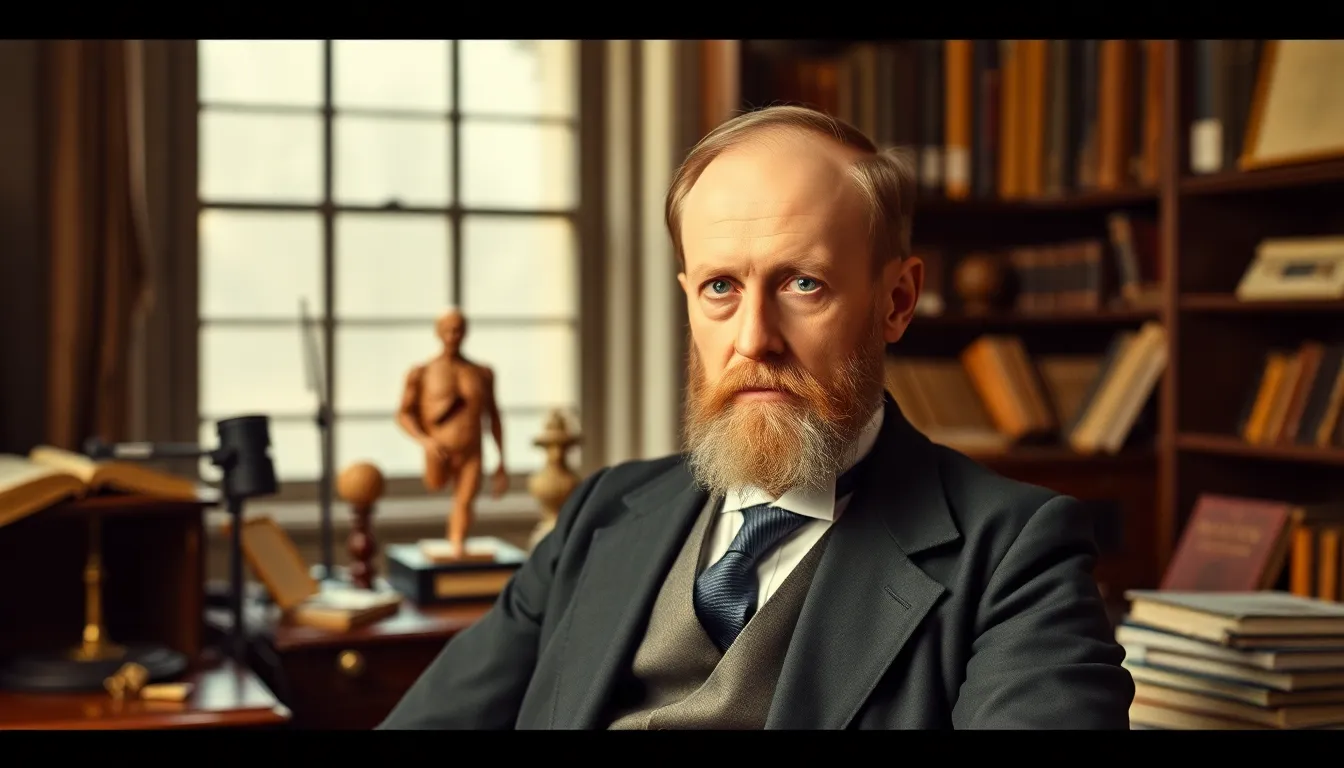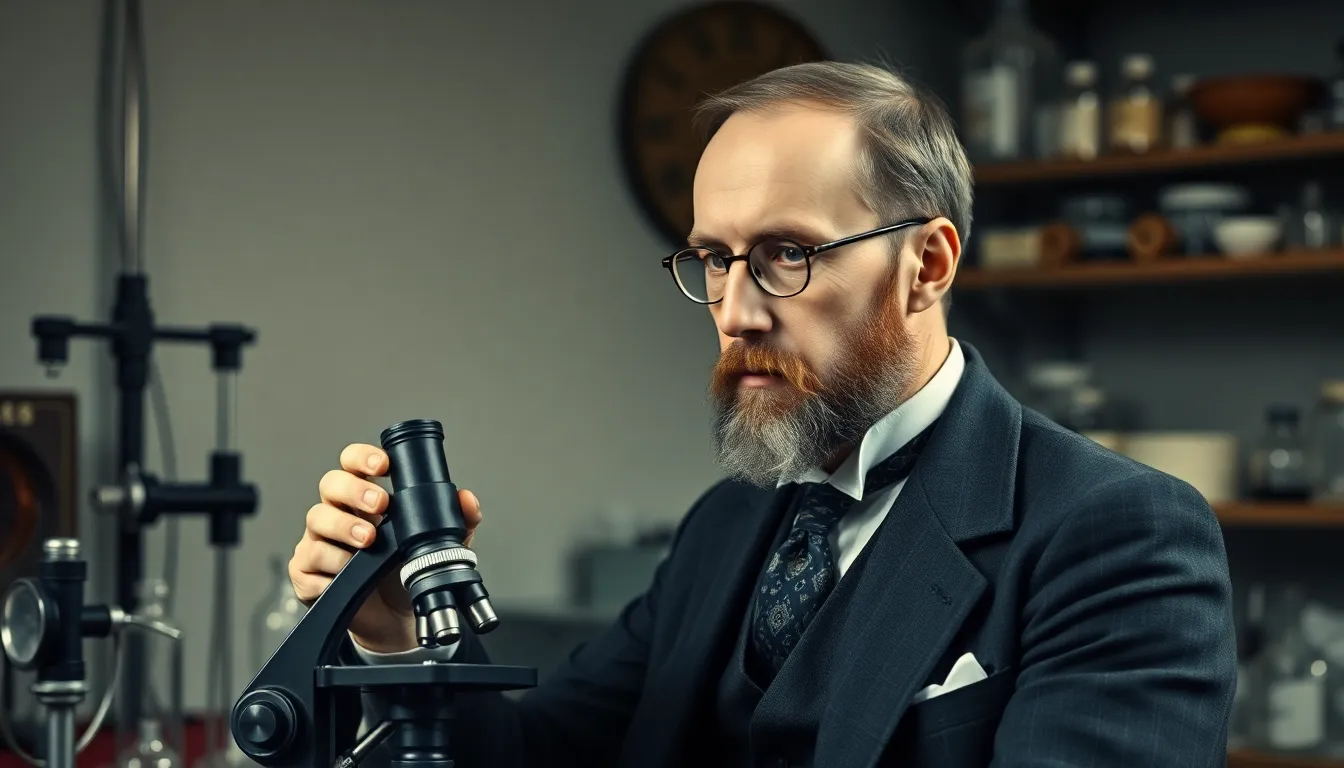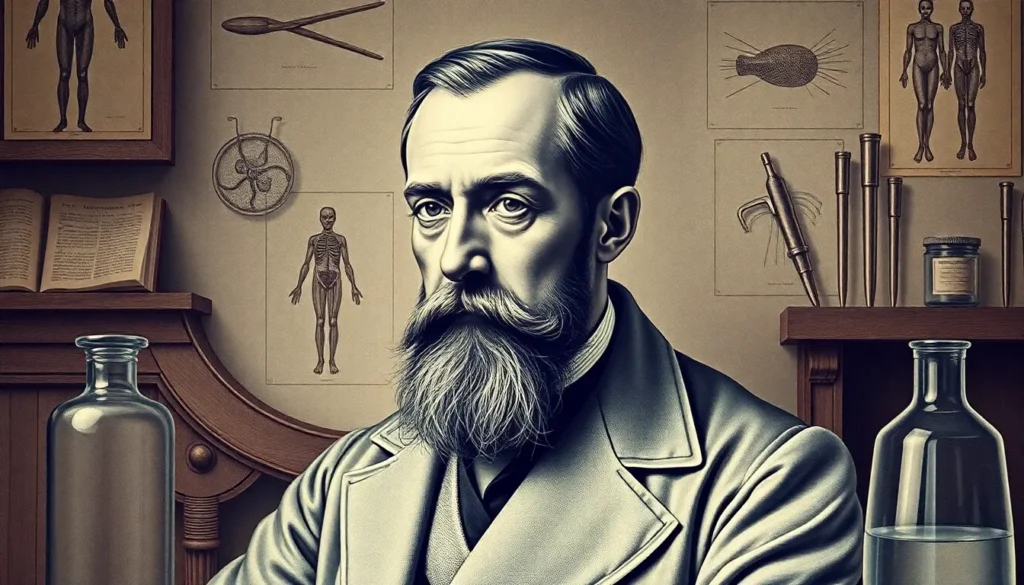Rudolf Virchow wasn’t just any doctor; he was the rock star of the medical world in the 19th century. With a flair for the dramatic and a mind sharper than a scalpel, he turned the study of cells into a riveting saga. Imagine a time when people thought cells just popped into existence like magic. Virchow stepped in and said, “Not so fast!” His famous proclamation that all cells come from pre-existing cells was a game changer, shaking the very foundations of biology.
In a world where cells were once shrouded in mystery, Virchow’s contributions illuminated the path to modern cell theory. He didn’t just add to the conversation; he transformed it. So, buckle up as we dive into the life and legacy of this scientific trailblazer, who proved that even the tiniest building blocks of life have a story to tell.
Table of Contents
ToggleOverview of Cell Theory
Cell theory serves as a foundational principle in biology, defining the essential concepts about cells. This theory posits that all living organisms consist of one or more cells. Additionally, it emphasizes that a cell is the basic unit of life. The idea that cells arise only from pre-existing cells stems from Rudolf Virchow’s significant contributions.
Three main components shape cell theory. First, all living things are composed of cells. Second, the cell is the basic structural and functional unit of organisms. Third, cells arise from existing cells through a process of division, rejecting earlier beliefs in spontaneous generation.
Virchow’s assertion directly addressed the question of cell origin. By stating that “Omnis cellula e cellula” (every cell from a cell), he reinforced the concept that life perpetuates through cell division. This perspective shifted the understanding of biological development and processes.
Prior to Virchow, theories about the spontaneous generation of cells lacked empirical support. Research from scientists like Antonie van Leeuwenhoek and Robert Hooke laid the groundwork for understanding cell structure, but it was Virchow who clarified the origin of cells. His contributions bridged gaps in knowledge, contributing to more comprehensive biological studies.
Cell theory has far-reaching implications across various scientific disciplines. Its principles apply not only to biology but also to medicine, genetics, and biotechnology. Understanding the cellular basis of life shapes research and innovation today.
Rudolf Virchow’s Background


Rudolf Virchow, known for his major contributions to cell theory, had a rich educational and professional background that shaped his scientific approach. His early experiences and medical practice laid the groundwork for his groundbreaking assertions in the realm of biology.
Early Life and Education
Rudolf Virchow was born on October 13, 1821, in Prussia. He pursued studies in medicine at the University of Berlin, graduating in 1843. Exposure to prominent teachers, like the anatomist Johannes Müller, greatly influenced his intellectual development. During his education, Virchow developed a keen interest in pathology, which later became a significant focus in his career. His early academic achievements paved the way for later innovations in cellular biology and pathology.
Medical Career
Virchow’s medical career commenced shortly after he graduated. He worked initially as an assistant to a pathologist at the Charité Hospital in Berlin, where he began his research on disease. In 1856, he became the director of the Pathological Institute in Berlin. This position provided a platform for his influential work in cellular pathology. He emphasized the study of diseases through the lens of cellular changes, reinforcing the notion that diseases originated within cells. His groundbreaking insights brought clarity to the understanding of disease mechanisms and solidified his reputation as a leading figure in modern medicine.
Key Contributions to Cell Theory
Rudolf Virchow made significant advancements that shaped cell theory. His insights transformed the understanding of cellular processes and influenced various scientific fields.
The Concept of Omnis Cellula e Cellula
Virchow’s phrase “Omnis cellula e cellula” emphasized that every cell arises from another cell. This idea countered earlier beliefs in spontaneous generation. By establishing this principle, he provided a framework for understanding cellular replication. His assertion clarified the importance of cell division in biological growth and development. Researchers built upon his work to explore how cells differentiate and grow.
Impact on Pathology and Medicine
Virchow’s contributions extended beyond cell theory, impacting pathology and medicine significantly. He highlighted that diseases originate at the cellular level. This perspective shifted how medical professionals view illness, leading to more targeted treatments. His emphasis on cellular pathology influenced future research, shaping clinical practices. Additionally, this understanding aided in developing therapies focused on cellular interventions, reinforcing Virchow’s legacy as a pioneer in medical science.
Legacy of Rudolf Virchow
Rudolf Virchow’s contributions significantly shaped the path of modern science. His ideas continue to influence various disciplines, particularly biology and medicine.
Influence on Modern Science
Virchow’s principle that cells arise from pre-existing cells redefined biological research. This notion solidified the understanding that life processes start at the cellular level. Researchers now emphasize studying cellular activities in various organisms. Virchow’s focus on cellular pathology laid the groundwork for understanding diseases. Significant advancements in medical treatments stem from his insights into the cellular origins of illness. This understanding has fostered new directions in genetics, biotechnology, and molecular biology. Consequently, Virchow’s legacy transcends his time, continuing to inspire contemporary scientific inquiry.
Recognition and Honors
Academic institutions worldwide honor Virchow’s contributions. Numerous medical schools name scholarships and awards after him, showcasing his enduring impact. The Rudolf Virchow Society continues to uphold his legacy through research and education initiatives. He was elected to various prestigious organizations, reflecting his stature in the scientific community. Additionally, Virchow’s work received recognition from the scientific establishment, with many researchers citing his theories. His influence permeates modern practices, bridging gaps between basic research and clinical application.





